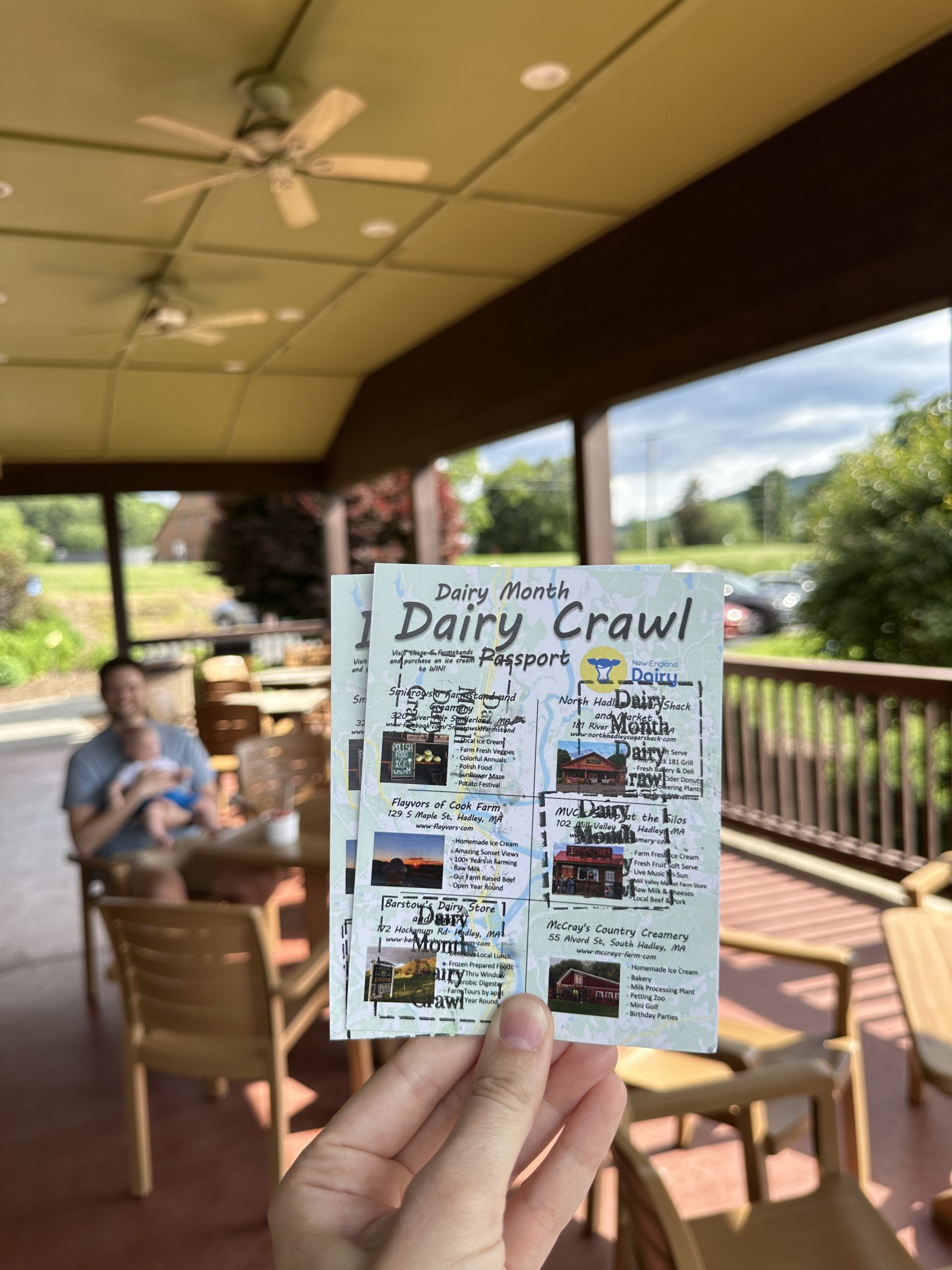By JULIAN MENDOZA
Staff Writer
Published: 6/23/2023 1:37:00 PM
Ravaged by supply chain issues, business monopoly and a volatile market, the dairy industry has seen countless farms sink over the past few years. In the case of some Pioneer Valley producers, though, the cream rises to the top.
“Dairy is certainly thriving here in the Pioneer Valley, which is unlike other areas in Massachusetts,” said Denise Barstow Manz, farm stand manager at Barstow’s Longview Farm in Hadley. “We are making food for New England and it’s not just our farm. It takes a network of farms to feed our community.”
“It really feels fulfilling to feed my neighbors,” said Sorrel Hatch, farm manager at Upinngil Farm.
According to Community Involved in Sustaining Agriculture (CISA), a farm advocacy nonprofit based in South Deerfield, 43% of the Commonwealth’s approximate 125 dairy farms are located in Franklin, Hampden and Hampshire Counties. CISA notes that the 23.5 million gallons of milk annually produced in Massachusetts are processed and sold in Massachusetts and neighboring states, making the industry “vital to the agricultural land base and the agricultural economy of our region.” Nobody knows this more than local dairy farmers, many of whom have enjoyed a heightened sense of fulfillment throughout June, which is National Dairy Month.
Some farms have celebrated with special offerings and promotions, such as Longview Farm, which pioneered the annual “Dairy Crawl” in 2018. The yearly Dairy Month event spans six farms, prompting participants to purchase each farm’s ice cream and receive a stamp on their “passport” at each location. Passports can then be exchanged for raffle tickets, with more stamps meaning higher odds at winning a $50 gift certificate from one of the farms. At its core, the Crawl is an effort of “acknowledging the communities that we’re a part of,” Barstow Manz expressed.
“It’s pretty surreal to see people standing in line explaining it to other people,” Barstow Manz said of the Crawl, which has grown from 500 to 2,000 passports since its inception. “It started off pretty small, but since then, it’s really taken off.”
Other farms foster intrigue on a regular basis through the uniqueness of their offerings. Henry Parsons, co-owner of Westhampton’s Mayval Farm, highlighted his farm store’s “skyr,” a traditional Icelandic dairy product similar in consistency to strained yogurt. Mayval Farm offers skyr in a variety of flavors, including maple, which is flavored with the farm’s own syrup.
“It’s been really a great product and it’s really been instrumental in making the farm store work,” Parsons said, noting that the store’s revenue is integral to the farm’s survival. “Once people try it, they’re kind of hooked.”
Laurie Cuevas, co-owner of Thomas Farm & Dairy in Sunderland, prides her farm in being “really unique” in the region as one of its only goat farms. The farm’s herd of 90 Nubian goats, which Cuevas said might be the largest in the state, has won gold at the Big E and a second-place award from a national competition sponsored by the American Dairy Goat Association.
“We’ve been really embraced by this area with our cheese,” Cuevas said, noting that her farm’s products are sold in about 50 local restaurants, grocery stores and farm stands. “This particular breed of goat, they have really superior milk to make cheese with… Sometimes, goat cheese has a really goat-y aftertaste to it. Nubians have a mild aftertaste to it, but it’s not as tangy. It’s mild and sweeter.”
These days, even just being a small New England dairy farm is cause for appreciation, farmers argued. Parsons noted that Danone North America, a major food producer, recently partnered with a huge dairy farm in Ohio and opted to no longer source from a pool of small farms. This monopoly, he said, severely harmed the local dairy industry. Now, having a New England farm is a matter of preserving the region’s heritage, Barstow Manz expressed.
Above all, though, those who choose to weather the industry’s hardships said they do so for the love of their product.
“The food we’re making, milk, is nutritious, affordable and delicious,” Barstow Manz said.
“Fresh, raw milk is really healthy and good for you,” Hatch added. “There’s a big difference between this and the kind of milk you can get in the store.”
